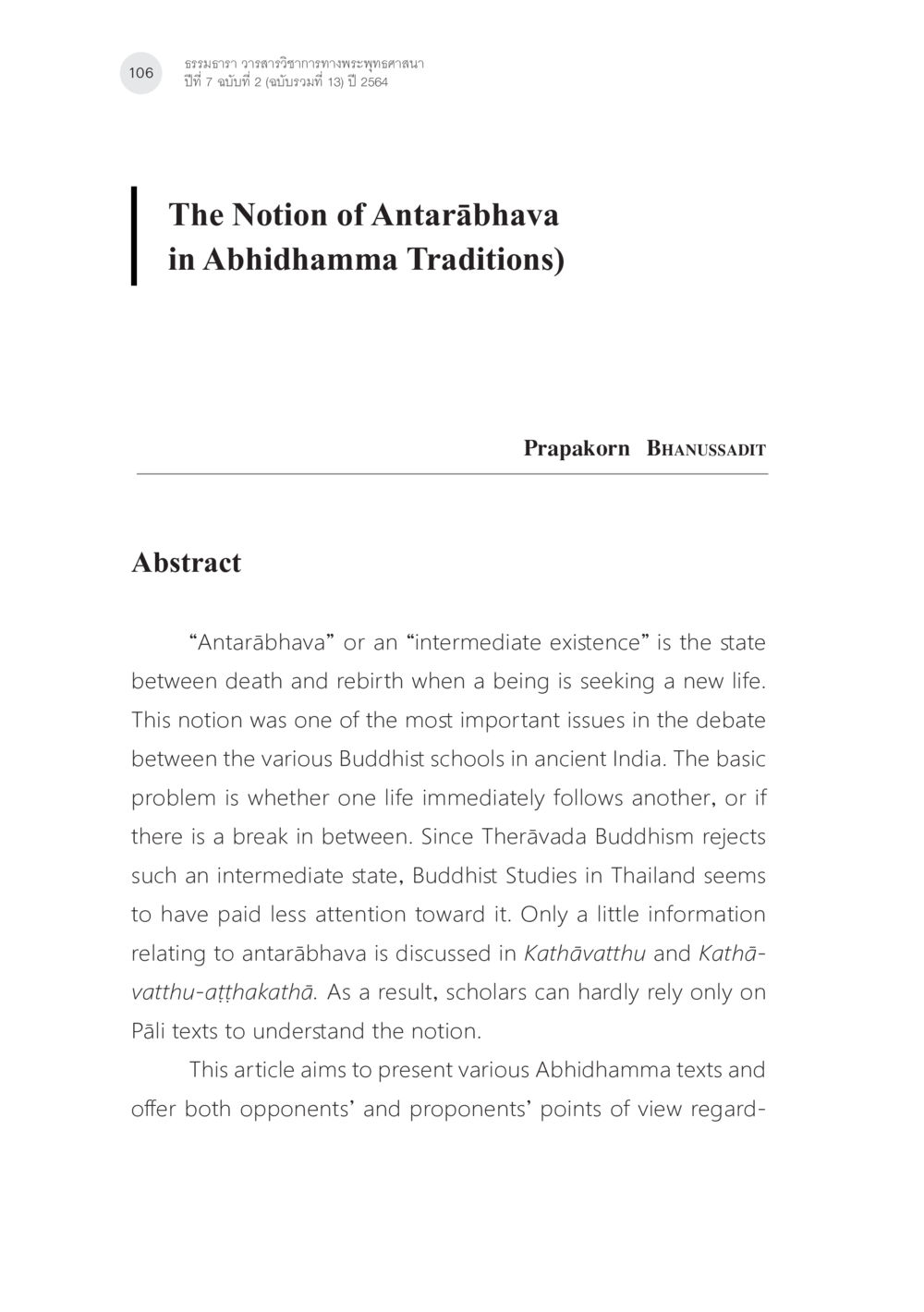แนวคิดเกี่ยวกับอันตระภาวะในประเพณีอภิธรรม : หน้า 4/51
แนวคิดเรื่องอันตราภพหลังความตาย ในคัมภีร์อภิธรรมของแต่ละนิกาย (1) : หน้า 4/51 ศึกษาความหมายของอันตระภาวะในอภิธรรมและข้อถกเถียงระหว่างคณะพุทธศาสนาต่างๆ ในอินเดียโบราณ
0 ครั้ง

สรุปเนื้อหา
บทความนี้สำรวจแนวคิดของ 'อันตระภาวะ' ซึ่งเป็นสถานะระหว่างความตายและการเกิดใหม่ โดยเฉพาะในการอภิปรายระหว่างคณะพุทธศาสนาต่างๆ ในอินเดียโบราณ ปัญหาพื้นฐานคือชีวิตหนึ่งติดตามอีกชีวิตหนึ่งทันทีหรือมีช่วงพักระหว่างความตายและการเกิดใหม่ พุทธศาสนานิกายเถรวาทปฏิเสธสถานะกลางนี้ ทำให้การศึกษาเรื่องนี้ในประเทศไทยมีความสนใจน้อย บทความนี้ยังนำเสนอข้อมูลจากตัวบทอภิธรรมเพื่อให้เห็นมุมมองทั้งสองด้านในการอภิปรายเรื่องนี้ ให้ความเข้าใจที่ลึกซึ้งมากขึ้นเกี่ยวกับอันตระภาวะ
หัวข้อประเด็น
-แนวคิดอันตระภาวะ
-อภิธรรมและความตาย
-การตีความในพุทธศาสนา
-การศึกษาพุทธศาสนาในประเทศไทย
ข้อความต้นฉบับในหน้า
ธรรมนาว วรรณารักรการชาราวพรฒครสถานา
ปีที่ 7 ฉบับที่ 2 (ฉบับรวบรวมที่ 13) ปี 2564
106
The Notion of Antarābhava in Abhidhamma Traditions
Prapakorn Bhanussadit
Abstract
"Antarābhava" or an "intermediate existence" is the state between death and rebirth when a being is seeking a new life. This notion was one of the most important issues in the debate between the various Buddhist schools in ancient India. The basic problem is whether one life immediately follows another, or if there is a break in between. Since Therāvada Buddhism rejects such an intermediate state, Buddhist Studies in Thailand seems to have paid less attention toward it. Only a little information relating to antarābhava is discussed in Kathāvatthu and Kathā-vatthu-atthakathā. As a result, scholars can hardly rely only on Pāli texts to understand the notion.
This article aims to present various Abhidhamma texts and offer both opponents’ and proponents’ points of view regard-
หน้าหนังสือทั้งหมด
หนังสือที่เกี่ยวข้อง
Load More



















































